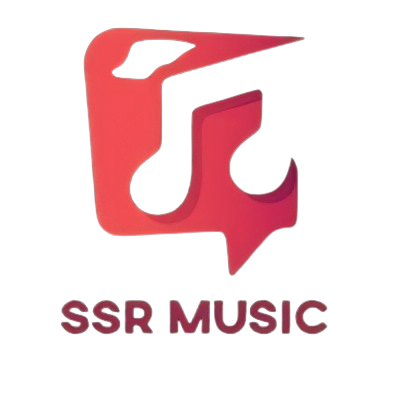
Table of Contents
How Do Music Aggregators Work?
The music industry has changed significantly in the digital age. Distributing music to different internet platforms, such streaming services and download shops, is made easier by music aggregators. They take care of the technical parts of licensing, distribution, and royalties, freeing up artists to concentrate on making music.
This blog entry explains what music aggregators are, how they operate, why using them is beneficial, and how to pick the best one. Independent labels and artists must comprehend how music aggregators help them reach a worldwide audience and make the most money possible.
Music Aggregators Companies

Music Aggregators Meaning
The music industry has changed significantly in the digital age. The proliferation of online platforms and streaming services has given musicians additional avenues to reach a worldwide audience with their music. For indie labels and artists, however, navigating the complicated world of digital distribution can be daunting. Here’s where aggregators of music come into play.
Definition
An online platform that assists labels and artists in distributing their music to different online retailers, social networking sites, and streaming services is called a music aggregator. They facilitate the easier distribution of music to audiences by serving as a middleman between the artist and digital platforms.
How Do Music Aggregators Work?
An artist or label submits their music files, artwork, and pertinent metadata to a music aggregator upon signing up. The technical parts of distribution are then handled by the aggregator, which makes sure the music is appropriately structured and labeled for every platform.
When the song is ready, the aggregator, acting on behalf of the label or artist, submits it to the selected outlets. This covers well-known online retailers like iTunes and Amazon Music in addition to streaming services like Deezer, Apple Music, and Spotify. A few aggregators also send content to SoundCloud and YouTube, among other social media sites.
By managing the licensing and royalties collecting procedures, music aggregators make sure that musicians get paid fairly for the streaming or downloads of their work. Additionally, they offer thorough analytics and reporting so that musicians can monitor their progress and decide on the course of their musical careers.
Benefits of Using a Music Aggregator
- Broad Distribution: By forming partnerships with different platforms, music aggregators provide artists with access to a worldwide audience. They can assist musicians in connecting with audiences across borders and on various platforms.
- Simplified Process: Artists save time and effort by having aggregators handle the technical parts of distribution. They guarantee that music is promptly and correctly prepared and supplied to platforms.
- Royalty Collection: Aggregators manage the intricate process of obtaining royalties from various platforms and compensating artists proportionately. This frees up musicians to concentrate on making music, with the aggregator handling the administrative tasks.
- Analytics and data: Artists can gain insights into their audience, revenue, and streaming stats by using the comprehensive analytics and data offered by aggregators. Planning upcoming releases and making educated judgments require this knowledge.
Choosing the Right Music Aggregator
Artists should take into account a number of aspects while choosing a music aggregator:
- Cost: Aggregators provide a variety of payment structures, such as annual, upfront, or revenue-sharing models. Artists ought to select a price scheme that fits both their long-term objectives and financial constraints.
- Platform Reach: Performers should make sure that their preferred platforms are distributed to via the aggregator. While some aggregators focus on particular platforms or genres, others have a wider audience.
- Extra Services: A few aggregators provide extra services like playlist pitching, marketing assistance, and sync licensing opportunities. Artists ought to evaluate their requirements and select an aggregator that offers the assistance they require.
Conclusion
In the current music industry, music aggregators are essential since they assist labels and artists in distributing their music to a variety of online channels. Aggregators free up musicians to concentrate on what they do best—create music—by streamlining the distribution process and managing licensing and royalties. In order to select the finest music aggregator for their purposes, musicians should think at things like cost, platform reach, and extra services.
Check out this blog related to this blog
Check our featured blog
What is the process of a song release? 12 Factors
Can AI Replace Human Musicians? Exploring the Future of Music Creation
Can AI replace human artists? Artificial intelligence in music Can AI Replace Human Musicians? Introduction Artificial intelligence in music (AI) is swiftly changing multiple industries, and the music sector is no different. The incorporation of AI into music production, songwriting, and live performance has opened the door to inventive practices and technologies that question conventional…
How to Use Vocal Compressor?
How to Use Vocal Compressor? Vocal compression is an important step in music production for creating a refined sound. This article covers everything from how to set up your compressor and dial in the optimum settings to advanced techniques like as parallel and side-chain compression. Learn how to control dynamic range, establish voice presence, and…
Difference Between Home Studio and Professional Studio
Difference Between Home Studio and Professional Studio Discover the fundamental distinctions between home and professional audio production facilities. Learn about each type of studio’s equipment, technology, and expenses, as well as the benefits and drawbacks. Whether you’re a hobbyist or a professional, this guide will help you select the best configuration for your requirements. Introduction…

Leave a Reply